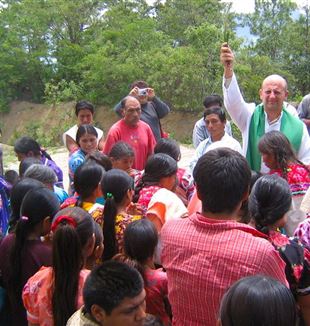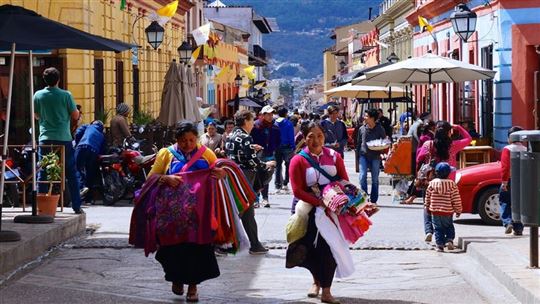
Amazonia/3: Waiting for Jesus to knock on the door
In Chiapas, a village of Native American farmers, several hours by jeep from "civilization". People, from the mountains, gather to welcome a priest who comes to celebrate Holy Week.Chiapas is a region in southern Mexico that still incites curiosity and affection around the world, as it was the place where the last romantic revolution of the Continent was born, in the first decade of this century, under the notorious Subcomandante Marcos.
Poets, intellectuals, politicians and restless young people, moved by the desire to change the world, all came to Chiapas to see the birth of a new world. According to different points of view, a great interest, or concern, was also re-awakened in the Church.
In the midst of a boiling political climate, I was invited to celebrate Holy Week in a small town in the Sierras de Chiapas, called Matazanos. It’s an area where farmers have been suffering from a lack of water and, the year before, there had been some cases of cholera.
To reach this village, where the Tzotzil - a mostly Catholic ethnic group - live, you have to travel to San Cristóbal de las Casas and then, with an off-road vehicle, you have to drive for hours on dirt tracks. A group of friends accompanied me on this adventure and they really helped me. We didn't know what was waiting for us, and we were a little bit concerned, because we were traveling in a region that was scene of conflict and not very safe.
Our Tzotzil guests had spread the word that a priest would visit them during Holy Week and that he would stop in the village of Matazanos. When I entered one of the chapels, a very poor environment, but which had been decorated inside with tree branches and palms on the ground, I saw that it was full of people waiting in silence. When I tried to pass through the people to get to the altar, I realized that it was almost impossible, because the central aisle was full of stretchers of sick people, who had been brought down from the mountains, by their relatives, to attend the Easter Triduum. So many villages had been left empty so that the people could be there. And those who came from far away had camped inside the church.
These people, who welcomed us, without knowing us, were waiting for the grace that flows in the Church. They came to all the moments of prayer and sought us out to talk. Behind the poverty of their clothes, were people who had kept faith in their community and who safeguarded it as a blessing. They knew well that faith was what kept them together.
The Chilean intellectual, Pedro Morandé, affirms that what a Latin American most appreciates is benediction. Therefore, after the Easter Vigil, I decided to go and bless all the houses in the village with the water that had been blessed during the baptismal liturgy.
The streets were not lit up and the houses were very far apart. Accompanied by some friends, I visited them all, until one o’clock in the morning. We knocked in the dark and they were waiting for us, awake: children, adults and the elderly... Happy because Christ came to visit them.
(to be continued)#SynodAmazon #LatinAmerica